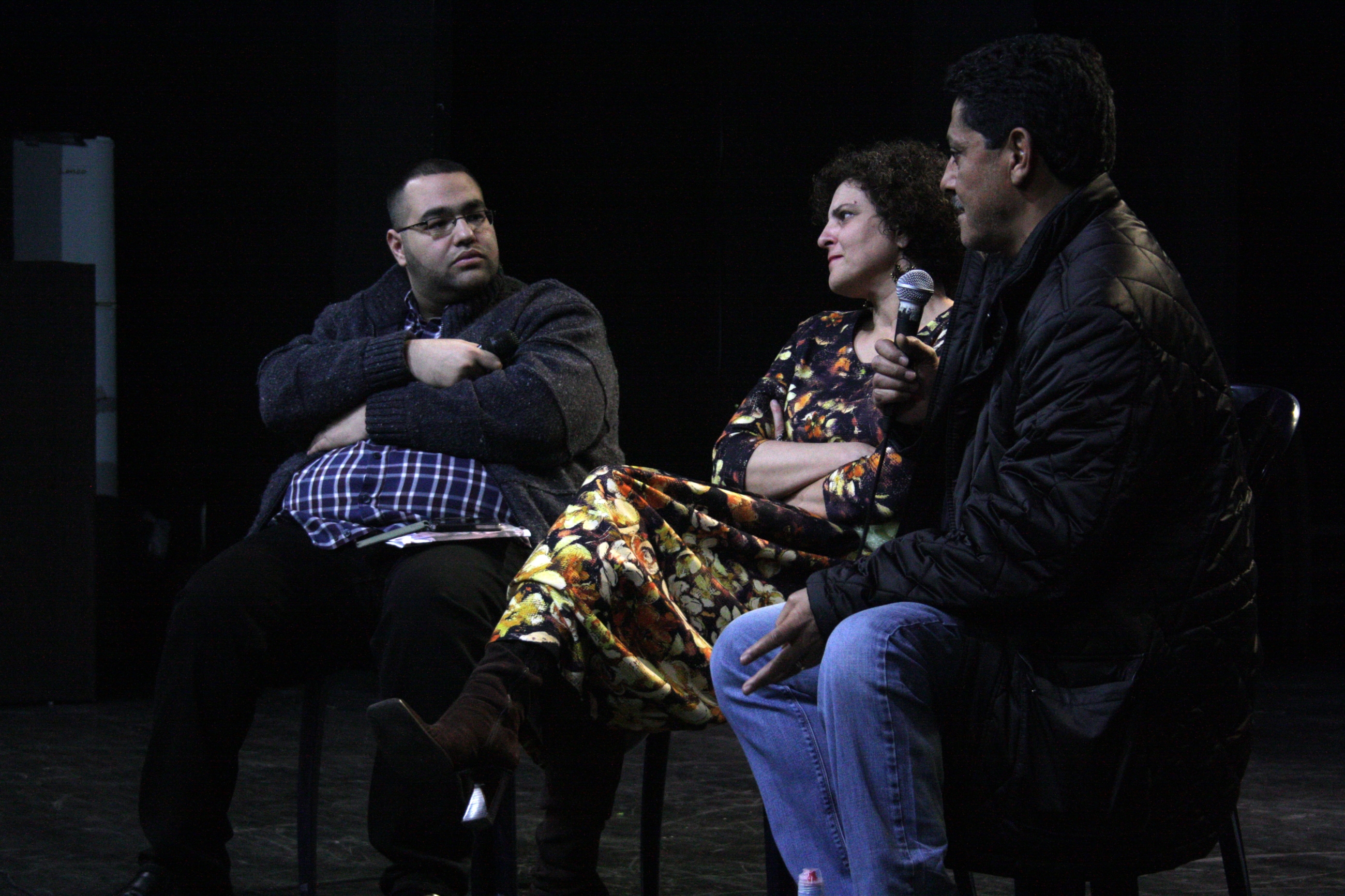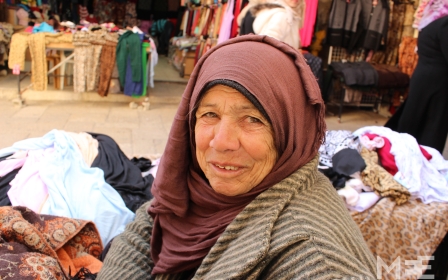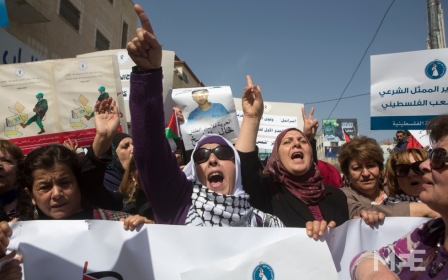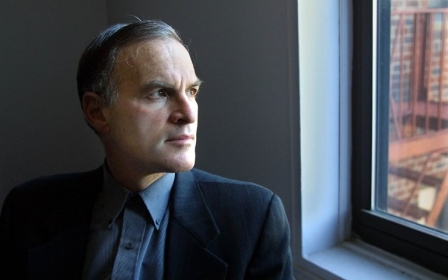Film festival on the frontline of a conflict over memory

A Palestinian Film Festival took place in the Israeli coastal city of Haifa on 4-6 March 2015. The event was organised by Zochrot, a small Israeli NGO devoted to raising awareness of the Nakba (‘catastrophe’ in Arabic) amongst the Israeli public. Its work is based on understanding that the events of 1948 - when hundreds of thousands of Palestinians were expelled from their villages and Israel declared its independence - continue to shape the present of both peoples.
In the documentary Letters from Al Yarmouk (2014), Gaza-born writer and director Rashid Masharawi relates one of the lesser-told stories of the Syrian civil war - that of the besieged Palestinian refugee camp of Al Yarmouk in the outskirts of Damascus. He intertwines footage shot by 23-year-old photographer Niraz Saeed, who is stuck in the camp, with Skype conversations he conducts from the comfort of Ramallah, the de-facto capital of the West Bank. After piecing together the story of the deteriorating conditions in the camp, and organising an exhibition of Saeed’s photographs in the Palestinian city, Masharawi asks: What can we do now? The geography of displacement leaves the telling of the story itself as the last frontier in which these two lives – both Palestinian, both refugee - can meet.
Zochrot’s project, called 48mm, has been running for two years. The organisation (its name means "remembering" in Hebrew) is well known for its activities focusing on the events of 1948, including regular guided tours to destroyed villages. However, this time the organisers opted for a different format, ditching the theme of "Nakba and Return" in favour of one focused on exploring Palestinian identity through its cinema. The festival screened several shorts and feature-length films, both fiction and documentaries, recently produced either in Palestine or abroad.
“We promote the right of return and we want to raise awareness of the right of return. The word return on the title of the festival means a lot,” said festival organiser Raneen Jeries. She added that the choice was guided by the direction of al-Midan theatre, the cultural centre that hosted the event and which caters to a predominantly Palestinian audience, and receives some public funding.
This was reflected in the audience drawn to the festival, which remained overwhelmingly but not exclusively Palestinian, and included many people from nearby villages, with 100 to 150 people in attendance at each screening. Previous festivals, according to the organisers, attracted a predominantly Jewish Israeli audience.
“The Haifa Cinemateque was my first choice but they started to ask a lot of money to rent the hall. I am still negotiating with them,” Jeries told Middle East Eye.
1948 remains one of the biggest taboos in Israeli society. In 2011, the Israeli Knesset enacted a law that empowers the Minister of Finance to fine or cut off state funding from any public body that discusses, teaches, commemorates or publicly mourns the Nakba.
The last festival, held at the Tel Aviv Cinemateque last November, sparked controversy when Israeli Minister of Culture and Sport Limor Livnat, of the governing Likud party, called for public funding to be cut from the Cinemateque for “enabl[ing] the holding on its premises a festival devoted entirely to preaching that the day on which Israel was founded is a day of mourning.” Her statement came a few months ahead of Israel’s national elections due to take place this month.
Nimrod Shine, executive assistant to the mayor of Haifa, maintains that the Haifa Cinemateque, which is run by a municipal corporation, wasn’t under any kind of pressure. “We simply asked Zochrot to pay for the hall,” he told MEE.
National cinema, a political minefield
Writer and director Suha Arraf from Maaliya, a town in the Galilee region of Israel, knows a thing or two about being on the frontline of the media and political war over memory and identity. Last summer, her film Villa Touma (2014) caused a media uproar when she listed it as a Palestinian film at the Venice Film Festival, after accepting 580,000 shekels (around $143,000) in public funds for its production. The Culture and Sports Ministry and other government institutions that had provided funding announced their intention to ask Arraf and the foundations that had supported her to return the grants.
“I’m Palestinian, my film is Palestinian,” said Arraf, who participated in a panel at the festival. “I have an Israeli ID. We are paying tax to this state, so it’s our basic right to get this funding. Funds don’t belong to countries, but to directors and producers. The film takes place in Ramallah, all the actors are Palestinian, there’s no Hebrew spoken from the beginning till the end. It’s a Palestinian movie,” argues Arraf, who also co-wrote the critically acclaimed feature films Lemon Tree (2008) and The Syrian Bride (2004).
Eventually, Arraf decided to change the classification of her film to "no nationality", despite arguing that she wasn’t in breach of any rules of her contract, which merely required her to acknowledge the funders.
“As Palestinians in Israel, we are living in a siege. In the Arab world, they consider us Israelis, so we are not allowed to show our work, almost nothing. We are not allowed to go there, due to the fact we hold an Israeli passport. In Europe they see us as Israelis, and more funding options are available for Palestinians in the West Bank,” she said. “In Israel, we are a minority. But if we say we’re Palestinian, we become part of the majority, and nobody wants to hear that."
Director and producer Abdel Salam Abu Askar, originally from Gaza and now based in Ramallah, admits that he would have been among the artists boycotting the Cinemateque in an effort to contribute to the economic, financial and cultural isolation of Israel until it starts upholding international law. Particularly after the last Gaza offensive, the BDS movement has been making huge strides forward.
“The issue is understanding the boycott. I believe it is a mistake to boycott films made by Palestinian [citizens of Israel], like many Arab countries do. I totally support them and would invite them to festivals in the West Bank,” he explains.
His film Gaza – Unwatchable, is a first-person account of last summer’s events in Gaza from a distant observer who knows each street and neighbourhood – an attempt to bring the pervasive, often nameless news images of destruction and suffering back to some level of humanity.
Also part of the section of the festival devoted to Gaza was Condom Lead, a short film by exiled Gazan artists and twins Tarzan and Arab, an ironic spin on Operation Cast Lead, the name Israel gave its offensive of 2008-2009. Love is put on hold and blown-up condoms fill the landscape of Gaza City as the film cleverly explores how war alters the nature of human relationships.
“There has been a Palestinian national cinema for more than 50 years,” Abdel Salam Abu Askar told MEE. “In the 1980s, it became something different. Before that, when people watched films about Palestine, they saw either heroes or victims. In the last few years, it became real cinema. The occupation is always there, but we tell real stories, we talk about daily life, about Palestinian corruption,” he said.
One festival offering that particularly embodies this "coming of age" of Palestinian cinema is Najwa Najjar’s Eyes of a Thief (2014) – inspired by the true story of a sniper during the Second Intifada. The film came under fire in Israel for the way it allegedly glorifies the life of a murderer.
“Cinema plays a part in building the state, and making films is our way to fight,” said Abu Askar.
For Raneen Jeries, Zochrot’s festival organiser, Palestinian cinema plays a part in the preservation of identity and memory.
“We have to be exposed to our culture. It’s heritage - we as Palestinians should be exposed to Palestinian cinema. I was 21 when I first learned that my own family had been expelled from Haifa. Before, I never questioned history as I learned it in Israeli schoolbooks, growing up here,” says Jeries.
“But in order to bring the Israeli community to take responsibility, first of all they need to know what happened in '48. The government has tried very hard from '48 till today to erase memory, to cover memory and to change memory. For us, this is the real challenge.”
New MEE newsletter: Jerusalem Dispatch
Sign up to get the latest insights and analysis on Israel-Palestine, alongside Turkey Unpacked and other MEE newsletters
Middle East Eye delivers independent and unrivalled coverage and analysis of the Middle East, North Africa and beyond. To learn more about republishing this content and the associated fees, please fill out this form. More about MEE can be found here.




